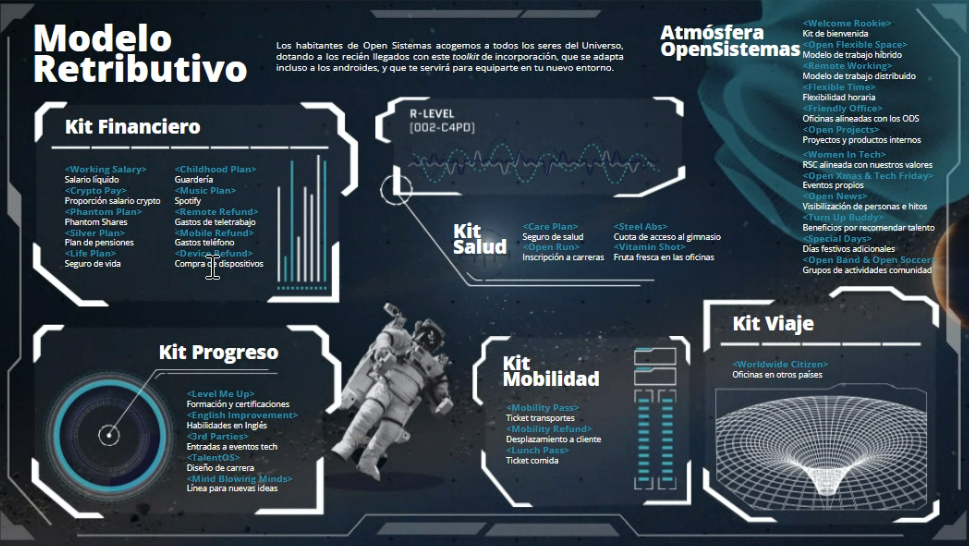Can a company reward its employees in terms of good feelings? We are all familiar with the study that showed that increasing the salary has no impact on happiness at work above a certain amount of income. For example, the environment should not be emotionally toxic, it should be fair, and there should be room for creativity… And a series of other characteristics make up what we call “emotional pay”. We break them all down for you in this article so that you can distinguish or generate good working conditions that satisfy needs beyond money.
What is emotional Salary?
The emotional wage is all those benefits the company can give non-financial benefits to its workers. It is intended to meet their personal, family, and professional needs. Common examples of emotional pay are flexible working hours, a good working environment, development potential in the company, etc.
In recent years, the concept of emotional pay has become more important. Especially because young people feel that a good salary does not necessarily equate to professional satisfaction.
The idea of staying in a job for a long time because it gives you financial stability is not enough for the latest generations.
Issues such as professional development, a pleasant environment, and work-life balance are determining factors in deciding whether to stay in one company or another. And talent retention is one of the key challenges facing companies today.
Therefore, this type of additional incentive proves to be decisive. Especially for companies looking for profiles that are in high demand in the labor market, such as technological profiles.
Benefits of emotional salary
It is clear that having an incentive in addition to financial remuneration for workers brings benefits. Not only for the workers but also for the companies that decide to implement it. These are the benefits that have the greatest impact:
Main benefits for workers of using emotional salary
Personal and work balance
According to a study conducted by Up Spain, flexitime and teleworking are the most important components for Spanish workers. Of those interviewed, 57% and 52% chose these two components as key when choosing a job.
So, a company that offers benefits such as flexible working hours or benefits such as childcare helps parents to reconcile their work and family life. Teleworking is another very good option that is highly appreciated by workers.
According to one study, people would rather cut their pay by 8% to work at home. This means fewer hours wasted in the day. For example, transport to work and more time for your personal life.
Improved welfare for workers
This is the most important aspect of emotional pay. By implementing it, people feel that their personal needs are listened to by the company. This leads to greater job satisfaction. Psychological well-being is essential because reducing stress, it increases workers’ commitment and motivation.
For example, avoiding commuting times allows people to develop other activities such as walking their animals, doing sports, training, having time for hobbies, or spending more time with their children. All this has a direct impact on personal well-being and, by extension, they will be better at work.
Professional development opportunities
Professional development is an aspect that cannot be missing among the benefits of companies. Nowadays there is a higher turnover of people in companies.
Workers are looking to be in companies that give them the opportunity to take on new challenges. Also, that helps them to broaden their competencies and to be able to grow in the companies. No one wants to be stuck doing the same job over and over again, room for creation, resolution, and the potential for improvement are fundamental aspects of any good job.
Many companies are opting to give their employees exclusive training benefits for being part of the organization, through LMS platforms where they create and give their employees access to their own courses, many of them produced on demand by the employees themselves.

Main benefits for companies
Increased productivity and commitment to the company of using the emotional salary
Feeling satisfied with your job has a big impact on how you go about your day-to-day work. An employee who has sufficient incentives at work will be more committed to the company. They will even go the extra mile in what they do.
Also, an employee who feels that the company he or she works for offers emotional well-being and incentives will be more motivated. And, consequently, be more productive as they will be more motivated to do their job on a day-to-day basis.
Having a sense of progress at work can be achieved in many ways, for example, by changing from an hourly to a goal-based work model, with control frameworks such as OKRs or Agile systems (e.g. sprint work), which allow you to feel that you deliver and achieve closure and milestones with your own work.
On the other hand, other companies opt for more extensive or long-term financial rewards, which invite employees to feel part of the company and take greater responsibility for the company’s growth. They use reward systems such as cryptocurrencies, incentives, or participation in the company’s shares.
Attracting and retaining talent
Currently, attracting and retaining talent has been a critical issue for companies. Generally speaking, there has been an increased turnover of people in several companies.
But why is this happening?
The labor market is evolving and a good working environment is essential. Workers are more aware of the importance of this aspect.
So, emotional pay is a fundamental tool to attract and retain talent.
This is an economic alternative for companies to engage people and attract them to the company. It will allow people to align themselves more with the company and generate a closer and more human bond. And, in turn, it generates a sense of belonging.
Types of emotional salary
There are several ways in which a company can integrate an emotional wage strategy for its employees. In order to achieve the main objective of emotional pay, the needs of the employees must be taken into account. This is achieved through a study and analysis of what their needs are. Here are the main forms of emotional salaries for companies today:
- Recognition: Recognising the work of employees is a very simple action that can be highly motivating. An example of this is public recognition or gift vouchers for travel, time off, or financial rewards.
- Flexible working: This is probably the most effective type of emotional pay. Implementing flexible working hours and teleworking allows for a work-life balance. This has a very positive impact on productivity.
- Training programs: Professional development of workers is an aspect that should never be left aside. For millennials, having a job in which they can enhance their professional career and improve their skills is a must.
- Promotion plans: Having the possibility of developing a professional career within the company is essential. This generates higher expectations from the company. It generates greater motivation and decreases the high turnover in a company.
Examples of companies using emotional salary
There are several examples of companies that have started to implement emotional pay:
Emotional salary in Ikea
IKEA offers additional bonuses to workers if they perform excellently at work. The programs’ One IKEA Bonus’ and ‘Tack! Employees benefit regardless of their position or rank. This improves the company’s competitiveness and productivity.

Another example is Google where employees can bring their pets to work. Having their dogs by their side boosts their motivation and helps them manage stress. Another interesting benefit at Google is the vouchers redeemable for a massage. Employees can give their colleagues message cards when they do a good job. The cards are exchanged for an hour massage that can be given in the office.
On the other hand, in Google’s offices, workers are provided with creative entertainment spaces. Such as pool tables and recreational spaces.
OpenSistemas
At OpenSistemas, emotional salary or emotional pay is a key part of the remuneration model.
It includes several levers that activate emotional pay. For example, the Progress Kit focuses on the development of workers’ skills. This plan includes the possibility of accessing certifications, perfecting language skills, and tickets to top industry events.
The hybrid work model and flexible working hours are aspects that allow for a good work-life balance. And it also allows for the integration of international teams, as we do at OpenSistemas with the combination of staff between Europe and Latin America.
This is how OpenSistemas represents the benefits of belonging to our world:










